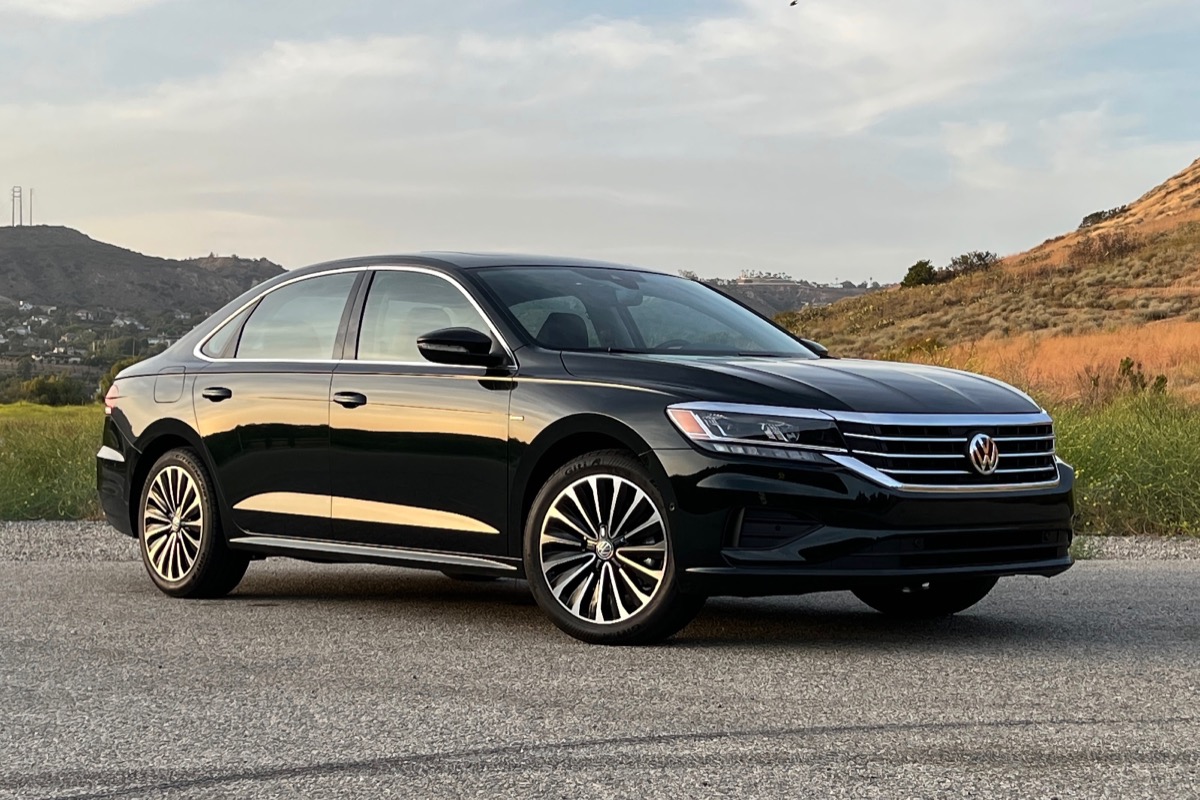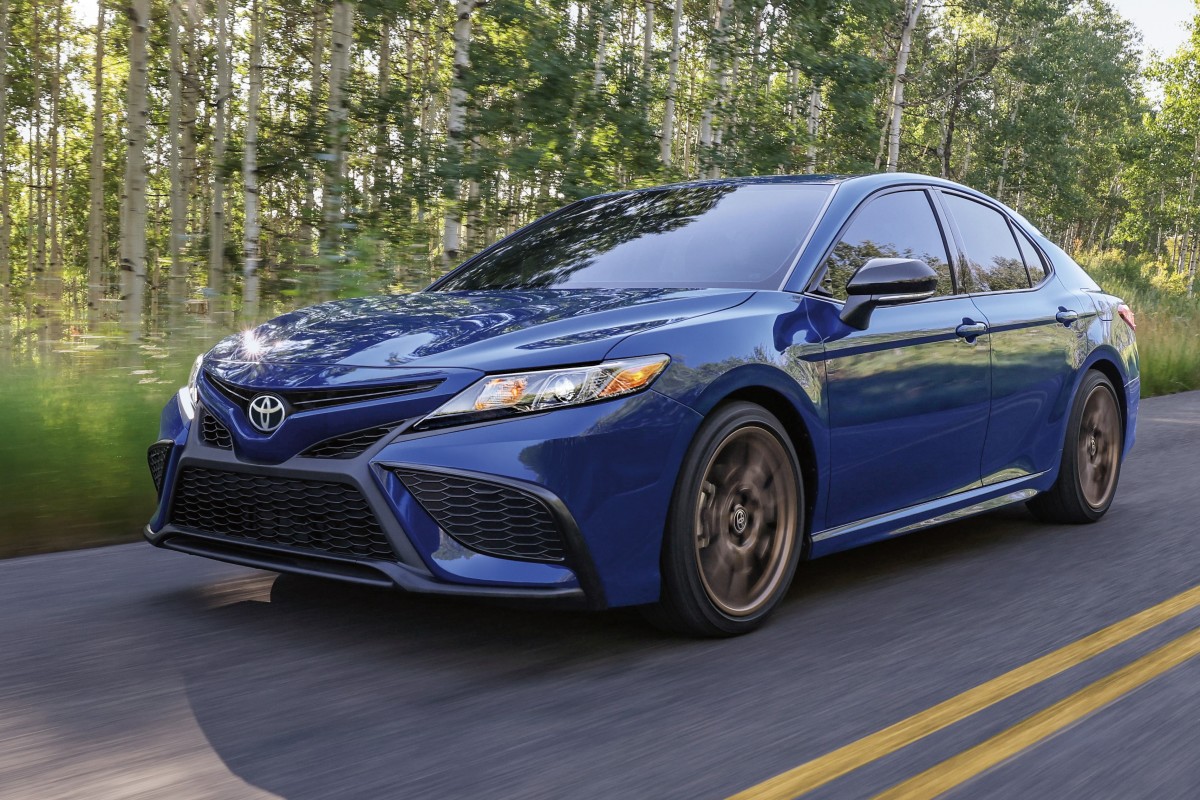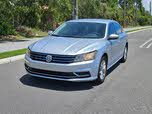Volkswagen Passat vs Toyota Camry
Overview | |
MSRP$27,575 | MSRP$25,845 |
Listings3027 | Listings9383 |
Ratings & Reviews | |
User Reviews | User Reviews |
Expert reviews6.0 out of 10 | Expert reviews7.2 out of 10 |
Pros
Cons
| Pros
Cons
|
Reviews SummaryFirst came the Dasher in 1974, then the Quantum in 1982, then the Passat in 1990. None became household names like the Honda Accord or Toyota Camry, partly because the Passat and its progenitors appealed to a small contingent of Americans seeking European design, engineering, and driving dynamics in a car often characterized as a bargain-priced Audi. But in the midsize sedan segment, a reputation for reliability and efficiency, not design or handling, is king. Tired of compromise, Volkswagen "Americanized" the Passat for the 2011 model year, moving production to a new factory in Chattanooga, Tennessee. The car's blandly attractive design, huge interior, big trunk, and soft ride seemed to be just what U.S. customers wanted, along with a ”Made in the USA” label. But those potential buyers had moved on to SUVs, and the new Passat alienated some of the VW faithful. The Dieselgate scandal didn't help the Passat, either. VW nailed the car's coffin shut when the family car segment began to wither rapidly. So now, the Passat departs the U.S. market, effectively replaced by the Tiguan and Atlas SUVs and leaving the Jetta to serve people who still want a sedan wearing a VW logo on its grille. | |
Reviews SummaryIn 2021, Toyota sold more than 310,000 Camrys, making it the third best-selling vehicle of the year that was not a pickup truck. Considering all of the headlines about how people don’t buy cars anymore, you might find this fact surprising. And while many of those Camry sales were to fleet operators like rental car agencies, there are plenty of consumers who still want a roomy, reliable, efficient, safe, and affordable car. The 2022 Toyota Camry is what they often choose. | |
No video found | |
Popular Features & Specs | |
Engine2.0L 174 hp I4 | Engine2.5L 203 hp I4 |
Drive TrainFWD | Drive TrainFWD |
Seating Capacity5 | Seating Capacity5 |
Horsepower174 hp @ 5200 rpm | Horsepower |
MPG City24 | MPG City28 |
MPG Highway36 | MPG Highway39 |
Engine | |
Engine Name2.0L 174 hp I4 | Engine Name2.5L 203 hp I4 |
Torque206 lb-ft @ 1700 rpm | Torque |
Horsepower174 hp @ 5200 rpm | Horsepower |
DrivetrainFWD | DrivetrainFWD |
Fuel Economy | |
MPG City24 | MPG City28 |
MPG Highway36 | MPG Highway39 |
Interior | |
Seating Capacity5 | Seating Capacity5 |
Key Features | |
Sunroof/MoonroofStandard | Sunroof/Moonroof |
Safety | |
Front Crash Overall3 | Front Crash Overall5 |
Side Crash Overall5 | Side Crash Overall5 |
Dimensions & Capacity | |
Cargo Space15.9 cu ft | Cargo Space15.1 cu ft |
Curb Weight3369 lbs | Curb Weight3310 lbs |
Height58.7 in | Height56.9 in |
Length193.6 in | Length192.1 in |
Width72.6 in | Width72.4 in |
Wheelbase110.4 in | Wheelbase111.2 in |
Maximum Payload937 lbs | Maximum Payload925 lbs |
Number of doors4 | Number of doors4 |
Overview | ||
MSRP | $27,575 | $25,845 |
Listings | ||
Ratings & Reviews | ||
User reviews | ||
Expert reviews | 6.0 out of 10Read full review | 7.2 out of 10Read full review |
Pros & cons | Pros
Cons
| Pros
Cons
|
Summary | First came the Dasher in 1974, then the Quantum in 1982, then the Passat in 1990. None became household names like the Honda Accord or Toyota Camry, partly because the Passat and its progenitors appealed to a small contingent of Americans seeking European design, engineering, and driving dynamics in a car often characterized as a bargain-priced Audi. But in the midsize sedan segment, a reputation for reliability and efficiency, not design or handling, is king. Tired of compromise, Volkswagen "Americanized" the Passat for the 2011 model year, moving production to a new factory in Chattanooga, Tennessee. The car's blandly attractive design, huge interior, big trunk, and soft ride seemed to be just what U.S. customers wanted, along with a ”Made in the USA” label. But those potential buyers had moved on to SUVs, and the new Passat alienated some of the VW faithful. The Dieselgate scandal didn't help the Passat, either. VW nailed the car's coffin shut when the family car segment began to wither rapidly. So now, the Passat departs the U.S. market, effectively replaced by the Tiguan and Atlas SUVs and leaving the Jetta to serve people who still want a sedan wearing a VW logo on its grille. | In 2021, Toyota sold more than 310,000 Camrys, making it the third best-selling vehicle of the year that was not a pickup truck. Considering all of the headlines about how people don’t buy cars anymore, you might find this fact surprising. And while many of those Camry sales were to fleet operators like rental car agencies, there are plenty of consumers who still want a roomy, reliable, efficient, safe, and affordable car. The 2022 Toyota Camry is what they often choose. |
Video | No video found | |
Popular Features & Specs | ||
Engine | 2.0L 174 hp I4 | 2.5L 203 hp I4 |
Drive Train | FWD | FWD |
Seating Capacity | 5 | 5 |
Horsepower | 174 hp @ 5200 rpm | |
MPG City | 24 | 28 |
MPG Highway | 36 | 39 |
Engine | ||
Engine Name | 2.0L 174 hp I4 | 2.5L 203 hp I4 |
Torque | 206 lb-ft @ 1700 rpm | |
Horsepower | 174 hp @ 5200 rpm | |
Drivetrain | FWD | FWD |
Fuel Economy | ||
MPG City | 24 | 28 |
MPG Highway | 36 | 39 |
Interior | ||
Seating Capacity | 5 | 5 |
Key Features | ||
Sunroof/Moonroof | Standard | |
Safety | ||
Front Crash Overall | 3 | 5 |
Side Crash Overall | 5 | 5 |
Dimensions & Capacity | ||
Cargo Space | 15.9 cu ft | 15.1 cu ft |
Curb Weight | 3369 lbs | 3310 lbs |
Height | 58.7 in | 56.9 in |
Length | 193.6 in | 192.1 in |
Width | 72.6 in | 72.4 in |
Wheelbase | 110.4 in | 111.2 in |
Maximum Payload | 937 lbs | 925 lbs |
Number of doors | 4 | 4 |

By: CarGurus + AI
At CarGurus, our team of experienced automotive writers remain at the heart of our content operation, conducting hands-on car tests and writing insightful guides that are backed by years of industry experience. To complement this, we are harnessing AI to make our content offering more diverse and more helpful to shoppers than ever. To achieve this, our AI systems are based exclusively on CarGurus content, ratings and data, so that what we produce is both unique to CarGurus, and uniquely helpful to car shoppers.









































